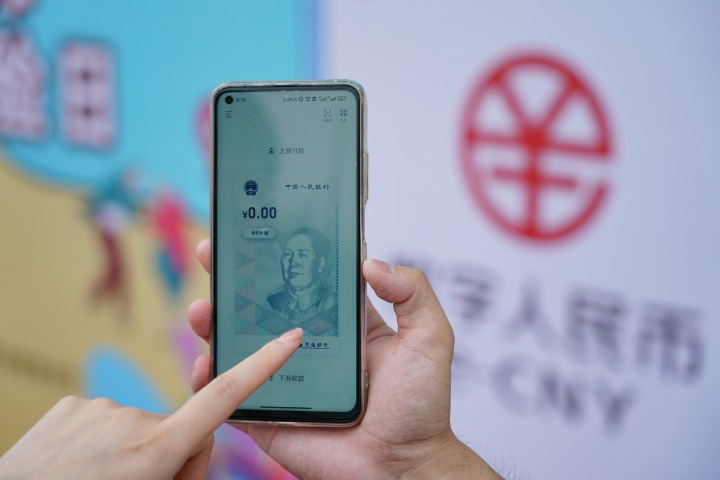
China Upgrades Digital Renminbi Payment Services to Benefit Foreigners
China has taken a significant step in upgrading its digital renminbi payment services, aiming to enhance the profile of its digital currency and provide a more user-friendly payment experience for foreigners. With mobile payment already dominating the payment landscape in China, these efforts are expected to improve the experience for foreigners during their visits to the country. Experts believe that further measures will be introduced to promote the digital fiat currency in the future.
One notable feature introduced in the newly launched e-CNY app is the “recharge before use” function, which enables foreigners to replenish their app wallets using the online services of global payment networks Visa and Mastercard. Additionally, foreigners can visit bank service outlets to recharge their digital RMB wallets with cash. If there is any remaining balance in the digital wallet, it can be returned to the foreign bank card or account used for topping up. This new feature is particularly significant as foreigners were previously unable to top up their e-CNY wallets in advance and could only do so on the spot when making payments.
The “recharge before use” function offers foreigners the convenience of using online payment methods, such as “quick pay,” similar to domestic users. It not only shortens the payment duration but also simplifies the process and improves payment efficiency. This upgrade reduces waiting times caused by foreign card verification and enhances the overall payment experience. Therefore, with this development, foreigners can now utilize their e-CNY wallets at both physical merchants participating in trial programs and on popular online platforms such as Didi, Meituan, Ctrip, and JD.
Dong Ximiao, chief researcher at Merchants Union Consumer Finance, highlights that mobile payment services are not as widely used in most foreign countries and regions compared to China. Hence, this upgrade not only creates a more convenient payment environment for foreigners in China but also helps test the e-CNY platform and promote the digital currency on an international scale. Moreover, Zhou Maohua, an analyst at China Everbright Bank, points out that the upgrade will benefit foreigners and increase the presence of e-CNY in cross-border transaction scenarios, ultimately facilitating the internationalization of the currency.
China has been developing the digital version of its fiat currency since 2014 under trial programs. As of May 31, the People’s Bank of China reported approximately 264 million e-CNY transactions in trial regions, totaling 83 billion yuan ($11.4 billion). Zhou Mi, a senior researcher at the Chinese Academy of International Trade and Economic Cooperation, emphasizes that China welcomes foreign consumers and acknowledges that improvements can still be made in areas such as cross-border payment.
In another notable development, Chinese financial technology company Ant Group has introduced seven new leading digital wallets and payment apps from Asia to the Chinese mainland. This brings the total number of overseas digital wallets accepted on the mainland to 10. With this initiative, users of overseas digital wallets like HiPay from Mongolia and Changi Pay from Singapore can seamlessly enjoy a payment experience across Alipay’s extensive merchant network using their domestic mobile e-wallets.
All these efforts to upgrade digital renminbi payment services and expand acceptance of overseas digital wallets reflect China’s commitment to promoting its digital currency and facilitating cross-border transactions. These initiatives not only benefit foreigners in China but also contribute to the overall internationalization of the digital RMB.






